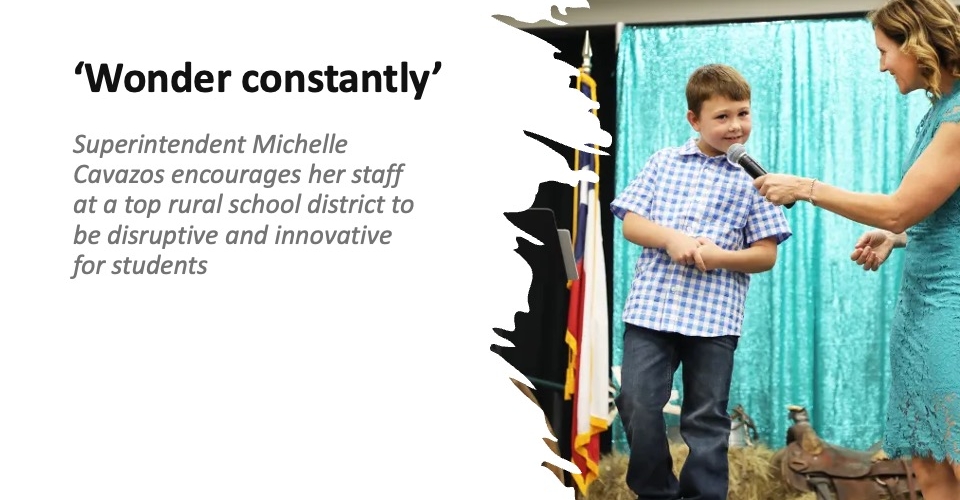There is no such thing as providing “too much information” when it comes to communicating with parents and families, says Superintendent Joshua McDowell of Crete Public Schools in Nebraska.
Quenching this thirst for updates is one way K12 leadership has changed since schools returned to normal schedules after the COVID pandemic. “One thing I heard over and over and over was, ‘Communicate more. Let us decide if we want to listen to what you’re saying,'” says McDowell, who was recently named a Superintendent to Watch by the National School Public Relations Association.
McDowell now uses his phone to record “Friday Updates” and sends them out on YouTube and other channels. These updates, which cover upcoming events and where the district needs more support, among other topics, have gained a lot of traction.
He’s now working with Crete High School’s media production class to enhance the quality of his updates, which include translation into Spanish. “It’s about openness and a willingness to meet people where they,” McDowell explains. “It has made me real; it has made me an average guy; it has removed the persona of the superintendent and the idea that everything has to be so formally communicated.”
‘Too many good things’
Communication is also one of the things that keeps McDowell up at night. Occasionally, minor events have taken over the narrative in the community, sometimes fueled by misinformation. Since the district doesn’t have a communications director, he is now working to create a student-led social media team to talk about their most positive school experiences.
“There are too many good things happening here to have one or two benign incidences take over the media,” he says.
K12 staffing update: Are shortages leveling out this school year?
Like many other superintendents, McDowell is also concerned about teacher recruitment and retention. He is working with Crete’s teachers’ union to make the district stand out as an employer. A partnership with a local liberal arts college offers district employees—such as paraprofessionals who want to become fully certified teachers—a 25% discount on tuition.
McDowell and his team of educators are now transitioning their “traditional” high school to an academy model, which will start with a year of exploration for incoming 9th-graders. They will all take a seminar class focused on success in high school and attend a career fair, make a college visit and fill out a scholarship form. Freshmen will also have a dedicated team of teachers, who will have more time to collaborate around what each student needs.
For the higher grades, McDowell is planning to launch more career pathways in education, health care, logistics and other industries. That innovation is one reason he believes his enrollment is increasing while neighboring districts are not gaining new students.
“My leadership philosophy is built on two things: transformation and adaptability,” he concludes. “In the world today there are so many unique situations, we have to be willing to sit down and have honest conversations and be a listener and a learner.”

![Josh_03[39]](https://districtadministration.com/wp-content/uploads/2023/10/Josh_0339-696x464.jpeg)


